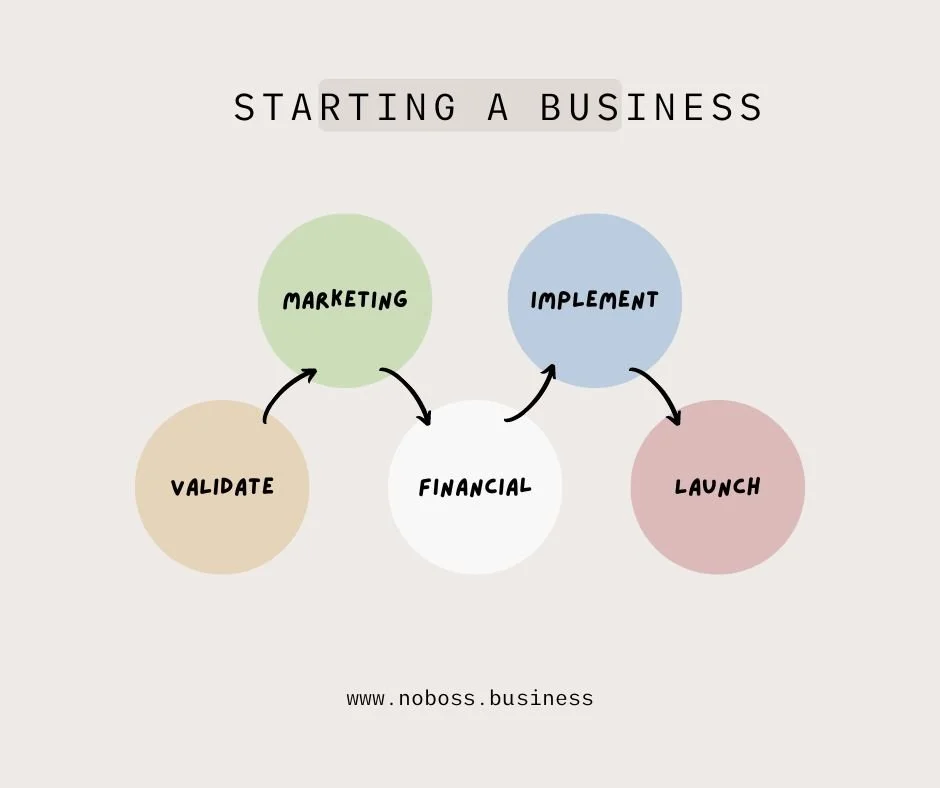Business PLAN vs PLANNING
Writing a ‘business plan’ and ‘planning a business’ seem obviously different, yet they are often confused or used interchangeably. The confusion could really affect the trajectory of aspiring entrepreneurs and established business owners alike. In the dynamic world of commerce, understanding the nuanced disparity between "writing a business plan" and "planning a business" is not just a matter of semantics; it's a critical distinction that can determine the success or failure of your entrepreneurial journey.
So, let’s explore the nuances between these seemingly interchangeable concepts.
We will dispel misconceptions and identify the most suitable approach to gain valuable insights into effectively launching your businesses.
Prepare to gain invaluable insights that will empower you to navigate the entrepreneurial journey with confidence. Whether you're a budding entrepreneur charting your course or an established business leader looking to recalibrate your strategy, exploring these two approaches promises to be a game-changer in your pursuit of business success. It's time to demystify the intricacies, elevate your planning prowess, and ensure that your business not only survives but thrives in the ever-evolving marketplace.
WHAT IS A BUSINESS PLAN?
A business plan is a document used to give an overview of your business and intentions - much like a resume is used to get a job. Once you have finalized your business plan, you would submit it to potential investors or lenders in hopes of securing funding to start your new business.
The key components to writing a Business Plan:
Executive Summary
Business History, Background, Objectives
Products & Services
Marketing Plan
Operational Plan
Financial Plan
It is your business idea in “theory”. It is the “IF” of your business idea. Although it is supported by industry facts and figures, it is still an assumption of how well your business MIGHT perform in the market.
Writing a business plan yourself can be a useful tool to help you think strategically about your business. But, for the typical entrepreneur with a tight budget and limited resources, there are a few problems with writing a business plan to start a business:
The reliability of the data being used.
The ability to accurately analyze and assume the potential of this business.
The lack of planning and testing of real-world results.
Essentially, you can write a business plan but never actually start the business.
A business plan is important, but planning is essential.
WHAT IS PLANNING A BUSINESS?
On the other hand, business planning is a process, a series of activities resulting in a new business.
You can start your new business without ever writing a business plan.
When embarking on the journey of starting a business, the importance of meticulous planning cannot be overstated.
Business planning allows for strategic thinking through the startup process. Planning your business with NOBOSS Workshops offers real-time action and practicality. The challenging part of the business planning process is transitioning your business idea from theory (planning) to practice (action). However, NOBOSS Workshops™ makes it easy!
The steps to starting a new business are:
CULTIVATE IDEA into Marketable concept
PLANNING for marketing, financing, product, operations, business goals, HR, and other aspects of business
MANAGEMENT: location, legal business structure, business name, registration, Tax ID, License & Permits, Business Bank Accounts
IMPLEMENT each Plan of Action
LAUNCH business, Opening Shop
Success is in the planning!
The many benefits of business planning:
Provides a guide for action
Increase confidence in your decision-making
Increase ability to anticipate problems
Provide motivation and commitment.
Allows flexibility
Is a major stress-management tool.
Helps you achieve more goals.
Can make you more productive.
Saves you time.
Improves clarity and focus.
Provides targets that will help your business grow.
Sound financial information on which to base decisions.
Improves resource utilization.
Enables you to concentrate resources on improving profits, reducing costs, and increasing ROI.
Set performance standards.
Increases the efficiency of an organization.
It facilitates proper coordination within an organization.
Allows you a birds-eye view of activity and factors affecting your business.
It reduces the risks involved in modern business activities.
“Plans are nothing; planning is everything.” — Dwight D. Eisenhower
With NOBOSS Workshops structured framework, new entrepreneurs, can leverage the expertise and resources to streamline the planning and launch process, saving valuable time and ensuring a more efficient start to their venture. Moreover, the focus on actionable strategies and immediate implementation, allowing entrepreneurs to start their businesses in real-time.
Planning IS the difference.
Download the FREE TRIAL VERSION.
Ultimately, while traditional business plans may have their merits in certain contexts, leveraging NOBOSS Workshops offers a more dynamic and pragmatic approach to planning, launching, and starting a business. By focusing on real-time action, practical guidance, and community support, NOBOSS equips entrepreneurs with the tools and resources they need to succeed in today's fast-paced and competitive business landscape.
Success starts with you NOBOSS just helps you get there!
Click on the tag below for more content like this or check out these:





